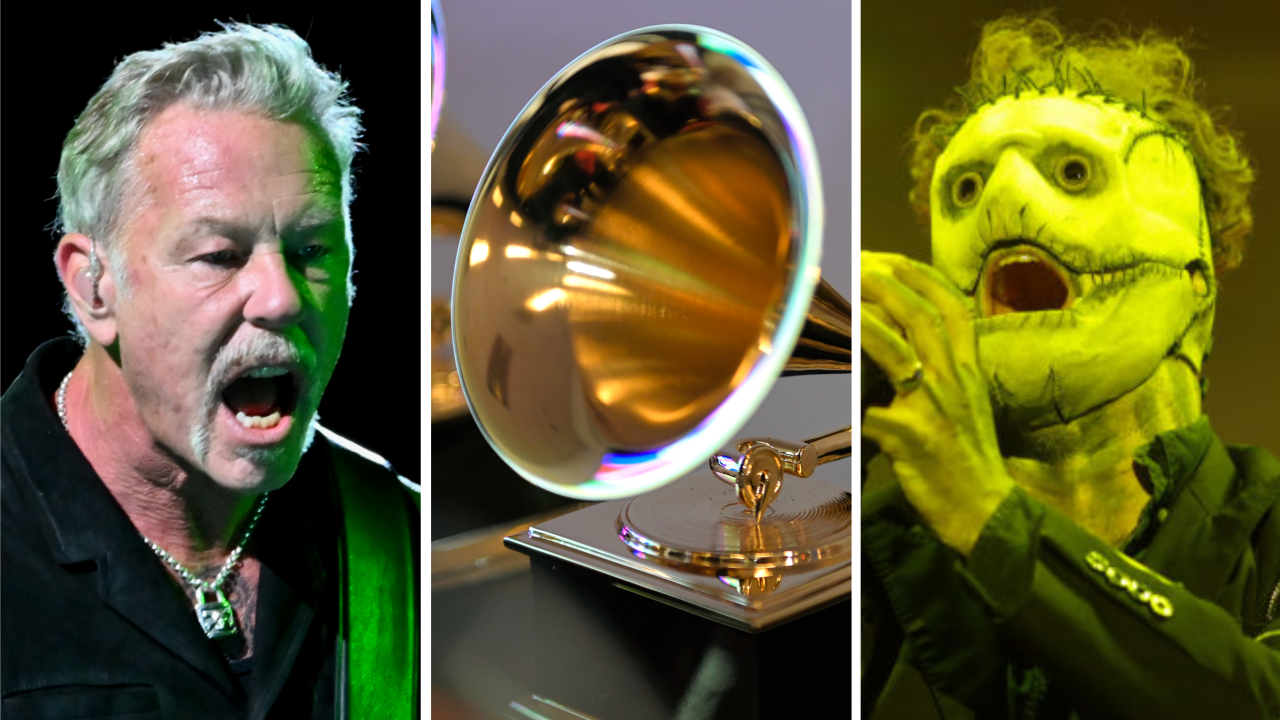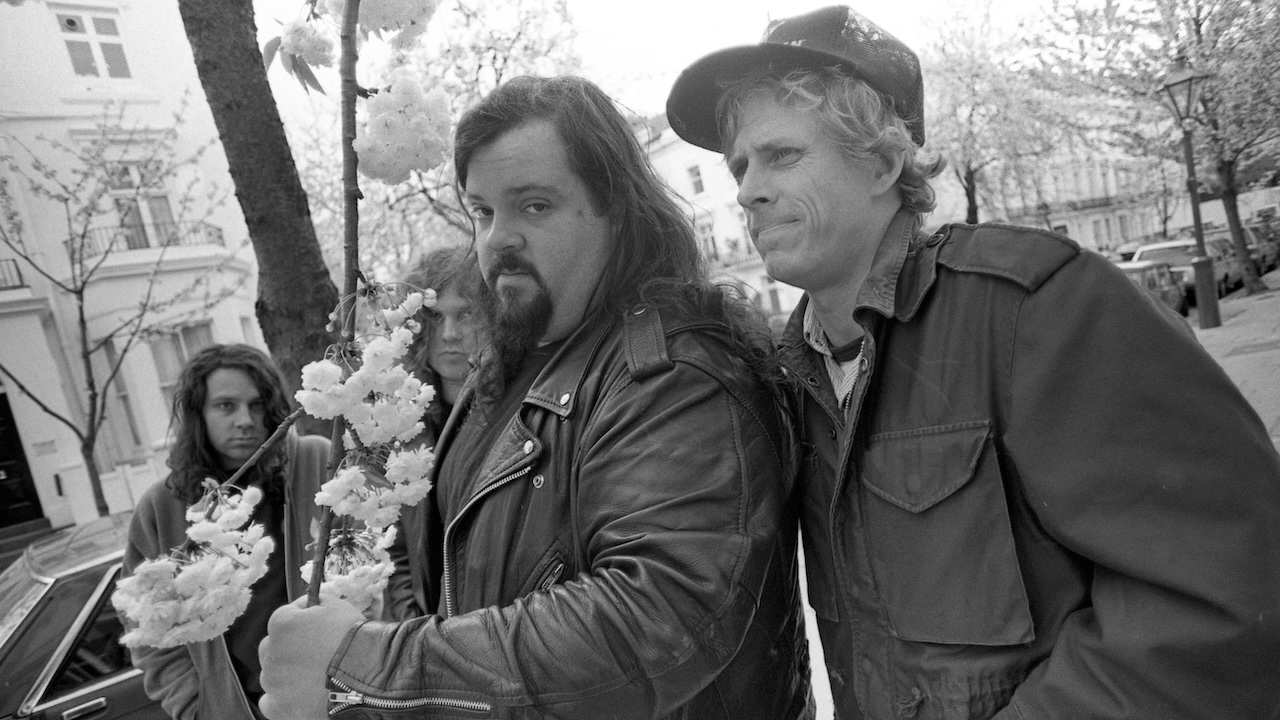The Grammys are still failing heavy metal – with so many new bands releasing incredible music, it’s never been more unforgivable
The Grammys have always got heavy metal wrong. But, with them defaulting to Metallica and Slipknot while the next generation is rife with talent, there is no excuse this year.

We shouldn’t be surprised, should we? The nominees for the Grammy Award For Best Metal Performance were announced this afternoon, and they were – to put it politely – predominantly boring. Metallica’s 72 Seasons, Slipknot’s Hive Mind, Disturbed’s Bad Man, Ghost’s Phantom Of The Opera and Spiritbox’s Jaded are the five contenders for the big gold gramophone in 2024. It’s a list of names that should represent the most gifted, relevant and beloved bands in all of heavy music today. Instead, it’s a mostly uninspired series of former winners that broadly reaffirms not the musical excellence of those named, but the apathy (at best) or contempt (at worst) the music industry’s biggest awards ceremony has for the metal scene.
Of course, saying “The Grammys are getting heavy metal wrong” is about as revolutionary as saying “The world keeps on turning.” Ever since the Recording Academy started recognising hard rock and heavy metal in 1989, they’ve been messing it up, with the ghost of them giving a prize to Jethro Tull over Metallica still haunting the institution. However – with the world of metal currently full to bursting with bands that are both making innovative music and on the cusp of breaking through – this continual misunderstanding has never been more inexcusable.
Now, to be fair to the Academy, they’ve not screwed up 100 percent of the time. Baroness getting nodded for Best Metal Performance in 2017 was a pleasant surprise, as was Mastodon winning it the following year with the superb Emperor Of Sand. Even this year, seeing Spiritbox listed alongside Metallica, Slipknot and Ghost inspires a warm feeling in the tummy, as they’re a legitimately fresh and popular force who likely have their best material ahead of them.
Every admirable choice the Grammys have made, though, can be countered with a dozen lazy or downright baffling ones: Metallica getting nominated again and again, Tenacious D winning by covering Dio on acoustic guitars, the Best Metal Performance ceremony not being televised since 1992…
Right now, Metallica are promoting the most middle-of-the-road material of their career, with 72 Seasons lacking the urgency and dynamic range of their halcyon days. If the Four Horsemen hadn’t made it, would the judging panel care? The same can be asked about Slipknot, members of whom have even admitted that their new album – The End, So Far – was rushed. Ghost aren’t even being nominated for a song they came up with, for crying out loud!
The list of bands more deserving of being on the podium of Best Metal Performance in 2024 is incredibly long and not that difficult to drum up. UK up-and-comers Urne released one of the finest collections of riffs of the year, A Feast On Sorrow, in August; In Flames returned to form with the blistering melodeath of Foregone in February; Crypta are rising monarchs in pan-American death metal and a Grammy nod for Shades Of Sorrow would affirm their place; Elder’s Innate Passage, released late last year, is a dreamscape of stoner riffs and hypnotic melodies. Worthy lineups will vary depending on which metalhead you talk to, but it’s a pretty safe guarantee most of them will come up with something better than what the Grammys did.
It’s easy to answer the hypothetical list we’ve just proposed with the counterargument, “Well, the Grammys would never touch bands like that anyway – they’re too small!” And that’s the problem, isn’t it? Heavy metal is intrinsically anti-mainstream and the number of bands we had when it was commercially viable is shrinking by the day. The Grammys’ desperate clinging to the last vestiges of metal’s “big” bands, in hopes of those artists’ fans paying attention, is increasingly outdated and frustrating.
Sign up below to get the latest from Metal Hammer, plus exclusive special offers, direct to your inbox!
What we’re left with is that the annual announcement of heavy music’s Grammy nominees, now, is nothing more than metalheads’ most regular dosage of outrage porn. It serves no one: Metallica, Slipknot and Disturbed are too big to benefit from another trophy in their cabinets, while the Grammys never look good for simply maintaining the status quo and the bands that could do with some gold are too far under the ceremony’s radar.
All is not lost, however. There are two ways the Grammys’ relationship with the heavy metal underbelly could improve. Option number one is just burn that bridge: metalheads don’t take the Grammys seriously, nor do they take us seriously, so let’s just go our separate ways and let the music industry’s pop juggernauts pat each other’s backs every February.
The second option, however, is the far more interesting one: the Grammys actually start acknowledging newer and/or underground talent. They’re already a fifth of the way there this year with Spiritbox, so it’s not completely impossible. If the Best Metal Performance slate for 2025 included one or two old names alongside – let’s say – Green Lung, Svalbard and Caligula’s Horse, diehard metalheads would suddenly be far more invested. Meanwhile, those on the fringes, only familiar with the aforementioned old names, would have a motive to look up the younger bands. It’s not like sacrificing one or two hard rock veterans would cost the Grammys TV ratings, right?
Right now, the Grammys are trapped in a limbo between trying to diminish the achievements of heavy metal and capitalise on it by throwing some gold its way every year. It’s an approach that works for no one. Either use music’s biggest prize to foster a future for the music metalheads hold so dear, or let’s just end this regular rage cycle here and now.

Louder’s resident Gojira obsessive was still at uni when he joined the team in 2017. Since then, Matt’s become a regular in Metal Hammer and Prog, at his happiest when interviewing the most forward-thinking artists heavy music can muster. He’s got bylines in The Guardian, The Telegraph, The Independent, NME and many others, too. When he’s not writing, you’ll probably find him skydiving, scuba diving or coasteering.


